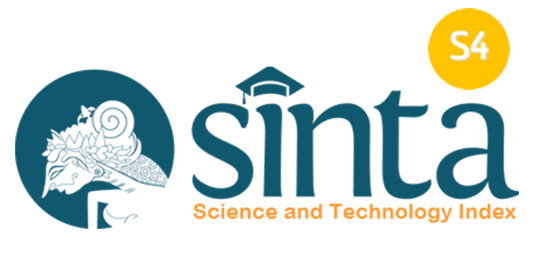STRESS, ANXIETY, AND DEPRESSION IN STOMATITIS PATHOGENESIS: A SYSTEMATIC REVIEW
Downloads
Introduction: Recurrent Aphthous Stomatitis (RAS) is a chronic inflammatory condition characterized by painful ulcers on the oral mucosa. Emerging evidence indicates that psychological factors, such as stress, anxiety, and depression, may play a role in its development. This review aims to examine the influence of these mental health factors on the onset and progression of RAS based on recent scientific literature. Methods: he exact mechanisms through which psychological stressors contribute to RAS remain poorly understood. To address this, a systematic review was conducted following PRISMA guidelines to consolidate current research findings. A thorough search was performed across PubMed, the Cochrane Library, and Google Scholar to identify original studies published within the past decade. The search terms used were: ("Recurrent Aphthous Stomatitis" OR "RAS") AND ("Stress" OR "Anxiety" OR "Depression") AND ("Psychological Factors" OR "Mental Health"). Results: Findings from the reviewed literature indicate a strong correlation between stress and both the initiation and recurrence of RAS. This association appears to be largely driven by the activation of the hypothalamic–pituitary–adrenal (HPA) axis, resulting in increased cortisol levels and subsequent suppression of immune function. These physiological changes are believed to weaken mucosal defenses, thereby increasing vulnerability to ulcer formation. Conclusions: These insights underscore the importance of incorporating psychological interventions—particularly stress-reduction techniques—into the management of RAS to enhance patient well-being and reduce symptom burden.
Abiko, Y., Paudel, D., Matsuoka, H., Moriya, M., & Toyofuku, A. (2021). Psychological Backgrounds of Medically Compromised Patients and Its Implication in Dentistry: A Narrative Review. International Journal of Environmental Research and Public Health, 18(16), 8792. https://doi.org/10.3390/ijerph18168792
Dhopte, A., Naidu, G., Singh-Makkad, R., Nagi, R., Bagde, H., & Jain, S. (2018). Psychometric analysis of stress, anxiety and depression in patients with recurrent aphthous Stomatitis-A cross-sectional survey based study. Journal of Clinical and Experimental Dentistry, 10(11),1109-1114. https://doi.org/10.4317/jced.55012
Ganesan, A., Kumar, G., Gauthaman, J., Lakshmi, K., & Kumbalaparambil, Y. A. (2024). Exploring the Relationship between Psychoneuroimmunology and Oral Diseases: A Comprehensive Review and Analysis. Journal of Lifestyle Medicine, 14(1), 13-19. https://doi.org/10.15280/jlm.2024.14.1.13
Karthikeyan, P., & Aswath, N. (2016). Stress as an etiologic co-factor in recurrent aphthous ulcers and oral lichen planus. Journal of Oral Science, 58(2), 237-240. https://doi.org/10.2334/josnusd.15-0610
Levinsky, Y., Aviel, YB., Ahmad, SA., Broide, M., Gendler, Y., Dagan, N., Gafner, M., Gavra, H., Kagan, S., Kedar, K., Natour, HM., Tal, R., Veres, T., Amarilyo, G., Harel, L. (2022). PFAPA flares observed during COVID outbreak: can emotional stress trigger PFAPA attacks? A multicenter cohort study. Pediatr Rheumatol Online J, 20(1), 46. https://doi.org/10.1186/s12969-022-00705-7
Manchanda, A., Iyengar, A. R., & Patil, S. (2016). Association between serotonin transporter gene polymorphism and recurrent aphthous stomatitis. Dental Research Journal, 13(3), 206-210. https://doi.org/10.4103/1735-3327.182149
Manczyk, B., Gołda, J., Biniak, A., Reszelewska, K., Mazur, B., Zając, K., Bińczak, P., Chomyszyn-Gajewska, M., & Oruba, Z. (2019). Evaluation of depression, anxiety and stress levels in patients with oral lichen planus. Journal of Oral Science, 61(3), 391-397. https://doi.org/10.2334/josnusd.18-0113
Nadendla, L., Meduri, V., Paramkusam, G., & Pachava, K. R. (2015). Relationship of salivary cortisol and anxiety in recurrent aphthous stomatitis. Indian J Endocrinol Metab, 19(1), 56-59. https://doi.org/10.4103/2230-8210.131768
Najafi, S., Mohammadzadeh, M., Zahedi, A., Heidari, M., & Rezaei, N. (2018). Association of Serotonin Transporter Gene Polymorphism with Recurrent Aphthous Stomatitis. Avicenna Journal of Medical Biotechnology,10(1), 56-60.
Nur’aeny, N., Gurnida, D. A., Suwarsa, O., & Sufiawati, I. (2020). Serum Level of IL-6, Reactive Oxygen Species and Cortisol in Patients with Recurrent Aphthous Stomatitis related Imbalance Nutrition Intake and Atopy. Journal of Mathematical and Fundamental Sciences, 52(3), 286-296. https://doi.org/10.5614/j.math.fund.sci.2020.52.3.3
Osipowicz, K., Turkowski, P., & Zdolińska-Malinowska, I. (2024). Classification-Predictive Model Based on Artificial Neural Network Validated by Histopathology and Direct Immunofluorescence for the Diagnosis of Oral Lichen Planus. Diagnostics, 15(15), 1525. https://doi.org/10.3390/diagnostics14141525
Paudel, D., Kuramitsu, Y., Uehara, O., Morikawa, T., Yoshida, K., Giri, S., Islam, S. T., Kitagawa, T., Kondo, T., Sasaki, K., Matsuoka, H., Miura, H., & Abiko, Y. (2022). Proteomic and microbiota analyses of the oral cavity during psychological stress. PLoS ONE, 17(5), e0268155. https://doi.org/10.1371/journal.pone.0268155
Priambodo, N. T., Hendarti, H. T., & Kharimah, A. (2021). Multidisciplinary Management of Recurrent Aphthous Stomatitis Triggered by Severe Depression. DENTA, 15(1), 39-44. https://doi.org/10.30649/denta.v15i1.6
Razi, A., Butt, A., Qureshi, S., Akram, I., Ali, A., Saghir, A., & Nazir, N. (2021). Association Of Severity of Anemia and Depression Among Patients Presenting with Oral Ulceration. Annals Of Abbasi Shaheed Hospital And Karachi Medical & Dental College, 26(3), 127-133. https://doi.org/10.58397/ashkmdc.v26i3.411
Sajewicz-Radtke, U., Radtke, B., Jurek, P., Olech, M., Skurska, A., Ślebioda, Z., Dorocka-Bobkowska, B., Pietuch, K., Sulewska, M., & Błażek, M. (2023). Psychological Functioning of Women Diagnosed with Lichen Planus and Other Diseases of the Oral Cavity—Explorative Study. Healthcare (Basel), 11(8), 1118. https://doi.org/10.3390/healthcare11081118
Shinkre R., Mukherji I., Bharadwaj A., Suresh NV., Banik AD., Pednekar SJ., K SB., Eshwar S., Rajagopal P. 2024. Depression, Anxiety, Stress, and Pain Severity in Patients With Recurrent Aphthous Stomatitis: A Cross-Sectional Study. Cureus, 16(6):e62694. https://pubmed.ncbi.nlm.nih.gov/39036205/
Susanto, H., Kendarwati, P., Imanusti, K., Widyanigsih, L., Budiarti, S., Supriatno, Supriatno. (2019). Decreased salivary cortisol in recurrent aphthous stomatitis treated with topical steroids. Journal of Islamic Dental Association of Iran, 31(1), 26–32.
Szymczak-Paluch, M. L., & Kłosek, S. (2023). Stress control as a method to reduce perceived pain in oral lichen planus. Advances in Dermatology and Allergology, 40(2), 241-245. https://doi.org/10.5114/ada.2023.127641
Valle, A. E.-D., Martínez-Conde-Llamosas, R., López-Vicente, J., Uribarri-Etxebarría, A., & Aguirre‐Urizar, J. (2013). Salivary cortisol determination in patients from the Basque Country with recurrent aphthous stomatitis. A pilot study. Medicina Oral, 18(2), 207-211. https://doi.org/10.4317/medoral.18110
Vandana, S., Kavitha, B., & Sivapathasundharam, B. (2019). Salivary cortisol and dehydroepiandrosterone as oral biomarkers to determine stress in patients with recurrent aphthous stomatitis. Journal of Oral and Maxillofacial Pathology, 23(2), 213-217. https://doi.org/10.4103/jomfp.jomfp_282_18
Wang, K., Ding, L., Yang, C., Hao, X., & Wang, C. (2020). Exploring the Relationship Between Psychiatric Traits and the Risk of Mouth Ulcers Using Bi-Directional Mendelian Randomization. Frontiers in Genetics, 16(11), 608630. https://doi.org/10.3389/fgene.2020.608630
Zhou, H., & Lin, X. (2023). Oral mucosal diseases and psychosocial factors: progress in related neurobiological mechanisms. Journal of International Medical Research, 51(12). https://doi.org/10.1177/03000605231218619
Copyright (c) 2025 Bagus Dwi Cahyono, Nurul Huda, Evy Aristawati, Ronal Surya Aditya, Apriana Rahmawati, Erik Kusuma, Ririn Nasriati

This work is licensed under a Creative Commons Attribution 4.0 International License.
Copyright Notice
1. The journal allows the author to hold the copyright of the article without restrictions.
2. The journal allows the author(s) to retain publishing rights without restrictions.
3. The legal formal aspect of journal publication accessibility refers to Creative Commons Attribution (CC BY).














